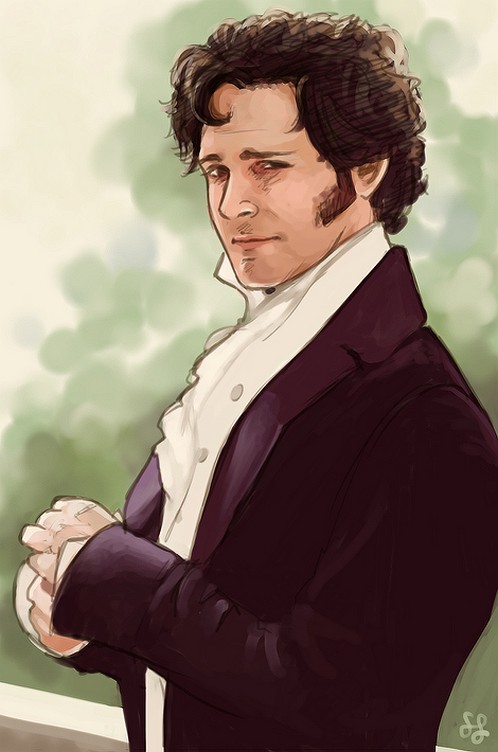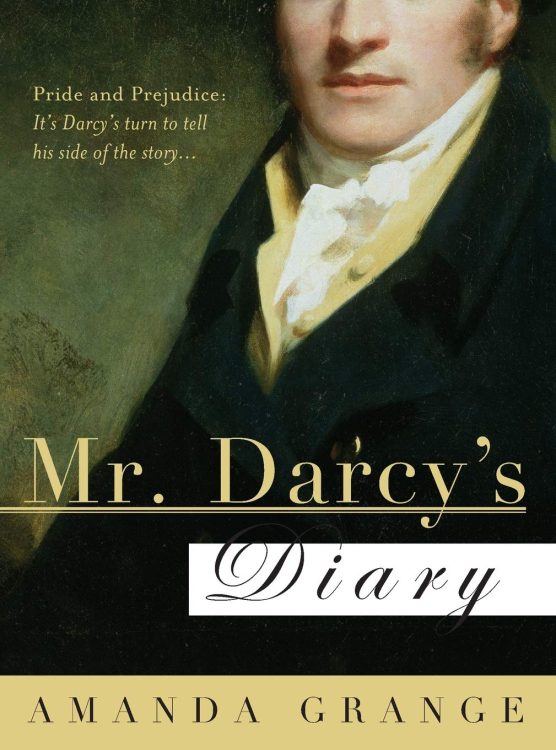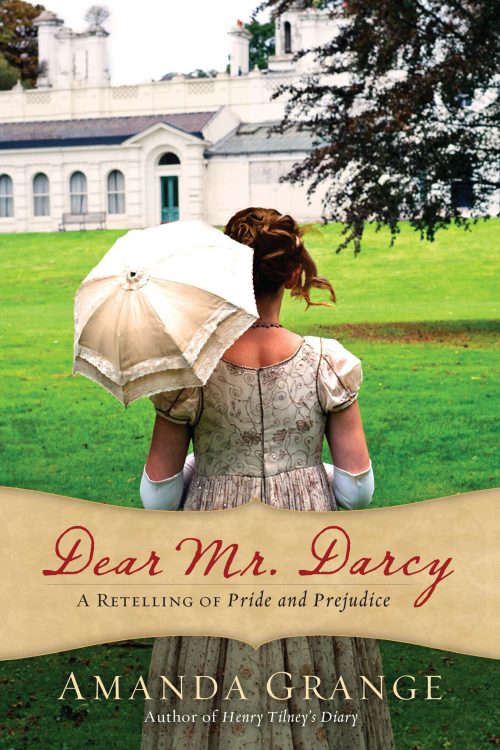From the desk of Laurel Ann Nattress: Today is Pride and Prejudice’s 209th birthday. Many happy returns of the day to Elizabeth Bennet and Mr. Darcy. Jane Austen’s second novel was published in a three-volume set by Thomas Egerton, Whitehall, London in 1813. She sold the copyright for £110. Ouch! One can only imagine how... Continue Reading →
The Earl Next Door, by Amanda Grange – A Review
From the desk of Katie Patchell: A lesson learned from the works of Jane Austen is that the rake never saves the day and never gets the girl. Mr. Wickham, Willoughby, Henry Crawford, John Thorpe, and Mr. Elliot are all fine examples of this rule. While Mr. Darcy, Colonel Brandon, Edmund Bertram, Henry Tilney, and... Continue Reading →
Mr. Darcy’s Diary: A Novel, by Amanda Grange – A Review
From the desk of Laurel Ann Nattress: In 2005 author Amanda Grange gave Pride and Prejudice fans what they had been craving for centuries—Jane Austen’s classic story retold entirely from the perspective of its iconic romantic hero—Mr. Darcy. It was certainly not the first novel to explore this concept, but Mr. Darcy’s Diary remains, after... Continue Reading →
Dear Mr. Darcy: A Retelling of Pride and Prejudice, by Amanda Grange – A Review
From the desk of Christina Boyd: Bestselling authoress Amanda Grange’s latest offering, Dear Mr. Darcy, is a clever retelling of Jane Austen’s Pride and Prejudice in the epistolary form. However, don’t be fooled by the title. This novel is so much more than just Mr. Darcy’s private correspondence, including many letters from several key players... Continue Reading →
A Preview of Dear Mr. Darcy: A Retelling of Pride and Prejudice, by Amanda Grange
From the desk of Laurel Ann Nattress: Please join us today in welcoming author Amanda Grange on the launch of her blog tour of Dear Mr. Darcy, a new retelling of Pride and Prejudice from Mr. Darcy’s perspective. Wait! Didn’t Amanda already write Mr. Darcy’s Diary? Yep, she did, but this novel has a new... Continue Reading →
Pride & Pyramids: Mr. Darcy in Egypt, by Amanda Grange and Jacqueline Webb – A Review
Review by Kimberly Denny-Ryder In the entire spectrum of Pride and Prejudice sequels, variations, retellings, and what-if’s I’ve seen Darcy as a vampire, werewolf, zombie, ranch owner, and rock star. I’ve seen Elizabeth as a master zombie fighter, scientist, doctor, sleuth, and time traveler. I’ve seen them in WWII England, Colonial America, Thailand, Texas, and... Continue Reading →
Pride and Pyramids Blog Tour with Authors Amanda Grange & Jacqueline Webb & Giveaway
Please join us today in welcoming authors Amanda Grange and Jacqueline Webb on their blog tour of Pride and Pyramids, a new Austenesque sequel to Pride and Prejudice that takes Elizabeth, Darcy and their family to Egypt. Leave a comment to enter a chance to win one of three copies of the book available. Welcome... Continue Reading →
Henry Tilney’s Diary: A Novel, by Amanda Grange – A Review
Guest review by Christina Boyd Albeit Jane Austen first sold Northanger Abbey to a publisher in 1803 (at first entitled Susan), it did not appear in print until 1817 when it was published after her death as a four volume set with her final novel Persuasion. In Northanger Abbey, Miss Morland is a daughter of... Continue Reading →
Wickham’s Diary, by Amanda Grange – A Review
Austen’s bad boy George Wickham gets top billing in this prequel to Pride and Prejudice that will surprise readers for more reasons than one first imagines. Anyone who has read Jane Austen’s original novel or seen one of the many movie adaptations knows that Wickham is a bad man: a charming rogue, a gamester and... Continue Reading →
A Preview of Wickham’s Diary & Interview with Author Amanda Grange
Please join us for the first stop on Austenesque author Amanda Grange’s blog tour of Wickham’s Diary, a new novella focusing on the early years of Jane Austen’s infamous ne’er-do-well from Pride and Prejudice, George Wickham, due out today from Sourcebooks. BOOK DESCRIPTION 11 July 1784 "Why should I be beneath Fitzwilliam? I am just... Continue Reading →
Exclusive Preview and Excerpt from Wickham’s Diary, by Amanda Grange
Launching on April 1st, Wickham’s Diary, Amanda Grange’s new novella inspired by Jane Austen’s bad boy enters this world on April Fools Day. We promise it is no joke, but indeed a treat. Renowned for her retellings of Austen’s classic stories from the heroes perspective: Mr. Darcy’s Diary (2007), Mr. Knightley’s Diary (2007), Captain Wentworth’s... Continue Reading →
UPDATED! Download Free Jane Austen-inspired eBooks on her Birthday, December 16, 2010
Update 16 December 2010: 1:00 pm PT Breaking News: Sourcebooks has extended the one day offer through 17 December 2010. Next Thursday, December 16th is Jane Austen’s 235th birthday and Sourcebooks, the world’s leading Jane Austen publisher, is throwing a huge one-day-only birthday book bash. They will be offering ten of their best Austen-inspired novels... Continue Reading →







